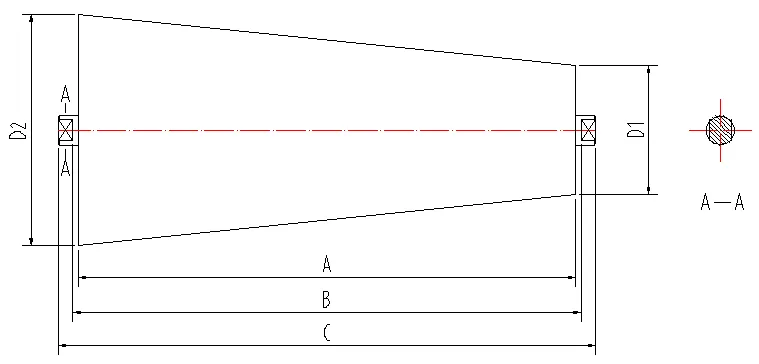 Afrikaans
Afrikaans  Albanian
Albanian  Amharic
Amharic  Arabic
Arabic  Armenian
Armenian  Azerbaijani
Azerbaijani  Basque
Basque  Belarusian
Belarusian  Bengali
Bengali  Bosnian
Bosnian  Bulgarian
Bulgarian  Catalan
Catalan  Cebuano
Cebuano  Corsican
Corsican  Croatian
Croatian  Czech
Czech  Danish
Danish  Dutch
Dutch  English
English  Esperanto
Esperanto  Estonian
Estonian  Finnish
Finnish  French
French  Frisian
Frisian  Galician
Galician  Georgian
Georgian  German
German  Greek
Greek  Gujarati
Gujarati  Haitian Creole
Haitian Creole  hausa
hausa  hawaiian
hawaiian  Hebrew
Hebrew  Hindi
Hindi  Miao
Miao  Hungarian
Hungarian  Icelandic
Icelandic  igbo
igbo  Indonesian
Indonesian  irish
irish  Italian
Italian  Japanese
Japanese  Javanese
Javanese  Kannada
Kannada  kazakh
kazakh  Khmer
Khmer  Rwandese
Rwandese  Korean
Korean  Kurdish
Kurdish  Kyrgyz
Kyrgyz  Lao
Lao  Latin
Latin  Latvian
Latvian  Lithuanian
Lithuanian  Luxembourgish
Luxembourgish  Macedonian
Macedonian  Malgashi
Malgashi  Malay
Malay  Malayalam
Malayalam  Maltese
Maltese  Maori
Maori  Marathi
Marathi  Mongolian
Mongolian  Myanmar
Myanmar  Nepali
Nepali  Norwegian
Norwegian  Norwegian
Norwegian  Occitan
Occitan  Pashto
Pashto  Persian
Persian  Polish
Polish  Portuguese
Portuguese  Punjabi
Punjabi  Romanian
Romanian  Russian
Russian  Samoan
Samoan  Scottish Gaelic
Scottish Gaelic  Serbian
Serbian  Sesotho
Sesotho  Shona
Shona  Sindhi
Sindhi  Sinhala
Sinhala  Slovak
Slovak  Slovenian
Slovenian  Somali
Somali  Spanish
Spanish  Sundanese
Sundanese  Swahili
Swahili  Swedish
Swedish  Tagalog
Tagalog  Tajik
Tajik  Tamil
Tamil  Tatar
Tatar  Telugu
Telugu  Thai
Thai  Turkish
Turkish  Turkmen
Turkmen  Ukrainian
Ukrainian  Urdu
Urdu  Uighur
Uighur  Uzbek
Uzbek  Vietnamese
Vietnamese  Welsh
Welsh  Bantu
Bantu  Yiddish
Yiddish  Yoruba
Yoruba  Zulu
Zulu rubber impact roller
The Impact of Rubber Impact Rollers in Industry
Rubber impact rollers play a crucial role in various industrial applications, particularly in the materials handling sector. These specialized components are designed to provide superior cushioning and support for heavy loads, ensuring that operations run smoothly and efficiently. In this article, we will explore the significance of rubber impact rollers, their benefits, and their applications across different industries.
At the heart of their functionality is the ability of rubber to absorb shock and minimize wear and tear on equipment. When materials are transported on conveyor systems, the impact from heavy loads can lead to significant damage over time. Rubber impact rollers are specifically engineered to withstand these impacts, providing a durable solution that extends the lifespan of both the conveyor system and the materials being transported.
One of the primary advantages of rubber impact rollers is their ability to reduce noise levels
. Traditional steel rollers tend to amplify sound when materials collide, leading to a noisy working environment. In contrast, rubber rollers dampen these sounds, creating a more pleasant atmosphere for operators and reducing noise pollution in industrial settings. This aspect is particularly beneficial in environments where employees are required to communicate or operate machinery, as the reduced noise levels can enhance safety and productivity.rubber impact roller

Additionally, rubber impact rollers offer enhanced traction for the materials being transported. The engineered surface of rubber allows for better grip, reducing the likelihood of slippage and ensuring that materials are delivered accurately and efficiently. This is especially important in industries such as mining or construction, where the safe handling of heavy materials is paramount.
Rubber impact rollers are also versatile in their applications. They can be found in various industries, including agriculture, mining, and waste management. In agriculture, for instance, they are used in conveyor systems to transport crops, ensuring that products remain intact and are delivered efficiently to processing facilities. In the mining sector, these rollers help support the transportation of minerals, minimizing damage during the handling of heavy loads.
Moreover, the maintenance of rubber impact rollers is generally simpler compared to alternatives. Rubber materials resist corrosion and are less prone to damage from environmental factors. This resistance means that industries can minimize downtime for repairs and replacements, leading to more consistent productivity levels.
In conclusion, rubber impact rollers are essential components in modern industrial applications. Their ability to absorb shock, reduce noise, and enhance traction makes them an invaluable asset in various sectors. As industries continue to seek efficient and reliable solutions for materials handling, the importance of rubber impact rollers will undoubtedly grow, solidifying their place as a vital part of the industrial landscape.
-
Revolutionizing Conveyor Reliability with Advanced Rubber Lagging PulleysNewsJul.22,2025
-
Powering Precision and Durability with Expert Manufacturers of Conveyor ComponentsNewsJul.22,2025
-
Optimizing Conveyor Systems with Advanced Conveyor AccessoriesNewsJul.22,2025
-
Maximize Conveyor Efficiency with Quality Conveyor Idler PulleysNewsJul.22,2025
-
Future-Proof Your Conveyor System with High-Performance Polyurethane RollerNewsJul.22,2025
-
Driving Efficiency Forward with Quality Idlers and RollersNewsJul.22,2025





























